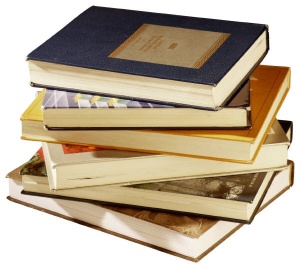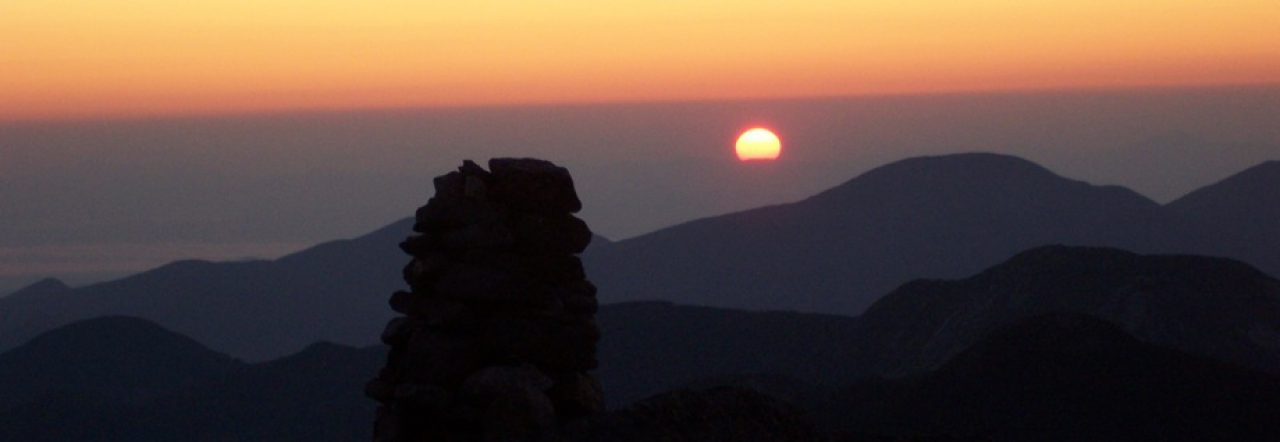As the American Transcendentalist Ralph Waldo Emerson once wrote (or so the various quote websites have us believe),“I cannot remember the books I’ve read any more than the meals I have eaten; even so, they have made me.” So it is with me. 
A confirmed bibliophile, I may not be a surprising case, but I’ll never forget one of my co-workers at Lowes. An older man with rough hands, worn blue jeans, and work boots, he rasped contracting stories in a cigaret-stained voice about “idiots who didn’t know shit about construction.”
But one day, during his break, when I was reading Don Quixote over a turkey sandwich, he sat down and started talking about books. Books he read in school, like Hemingway, Austen, Faulkner, and Dickens. Books his wife read, like Jody Piccoult and John Grisham. Books his father gave him, worn how-to manuals and beat-up hardcovers gathered from outdated encyclopedia sets.
“I miss reading,” he said, leaning back in his metal fold-out chair. “I miss the stories.”
Soon, I went back to the registers, thinking about it. Probably nothing would happen. But a few weeks later, he came in and pulled out a worn copy of the The Old Man and the Sea.
“My favorite,” he said. “I’ve never forgotten this book.”
Since then, I haven’t either.
So while Emerson’s quote proves accurate, I can’t help but critique one thing: we do remember some books. Some books make us who we are, and in that soul-building, in those long reading sessions and chapter-inspired epiphanies, the book itself remains significant. The change permeates those pages.
Here’s a list of five books that made me, in no particular order:
1. Siddhartha by Hermann Hess (1922)
This books covers the story of Siddhartha, but not the same Siddhartha who became the Tathagata Buddha. Still the stories are similar: a wealthy prince realizes the sad realities of life–the frailty of our bodies and the ephemeral quality of all things–and in response, he seeks Enlightenment.
The story itself is classic. Some may even say derivative and redundant. But one thing that has always stuck out from the book is the long periods of the time when he is lost, having to trace back his trail, and seek again. Coming back, he realizes that times of “samsara,” as he calls them, are as integral as genuine progress. In the murky scape of self-discovery and personal growth, picking and choosing between missteps and right steps makes one forget the sensitivity and insight forged by failure.
Since then, I’ve realized increasingly that while things may not always “work out in the end,” we make them work out by our ongoing commitment.
2. One Day in the Life of Ivan Denisovich by Alexander Solzhenitsyn (1962)
This book, a chilling, surprisingly funny story about Soviet prisoner Ivan Denisovich, spurred me to consider the sheer history of human suffering. Reading about Ivan Denisovich, I found a voice rising from a spectral, uninformed pool of associations and wanted to learn more.
So I did. I read a fantastic 800-page GULAG history by Anne Applebaum, then Solzhenitzen’s Archipelago and other “GULAG literature.” From there, I moved onto other tragedies: Rwanda, Nanjing, The Holocaust, Serbia. I read memoirs and histories, my passion becoming a painful obsession as I looked at contemporary issues, from Abu Ghraib to North Korea.
Since then, that knowledge rests at the back of my mind, a pandora’s box taped shut again, a reminder about how bad things can get, how bad they have gotten. I suppose it made me more serious, haunted even, but it has also taught me compassion and given me a genuine watchfulness, knowing how deep the free fall from grace can be.
3. The Sound and the Fury by William Faulkner (1929)
This beautiful, difficult book made me want to write. Faulkner’s prose, sometimes attacked for its length and lushness, overwhelmed me with its melodies and winding, serpentine rhythms. The book chronicles the decline of the Compson family in a series of largely stream-of-consciousness chapters, each from a different character. For example, the opening chapter shifts between a wash of memories and associations in blunt, awkward English, trying to reflect the perspective of the mentally disabled Benji, while the second chapter, narrated by Benji’s brother Quentin, recounts his last day and suicide in neurotic, brilliant prose.
I read that second chapter a dozen times. The blend of Faulkner’s iconic voice with the tangles and pools of thoughts and memories from this haunted, yet relatable character inspired me. “This,” I said, “is how I want to write.”
4. Think on These Things by Jiddu Khrisnamurti (1989)
This book, in itself, has had a small impact on me, but the time I read it was deeply formational. It is a series of lectures centered on certain topics by the Hindu philosopher Jiddu Khrishnamurti, known for his idiosyncratic ideas and confrontational style.
I read this book, alongside Aldo Leopold and Thoreau, by the banks of the Allegheny river, nearby my school my first year in college. As the rolling hills swallowed the sun in the evening, or the mist and fog draped the trees at dawn, I sat on the crooked roots of a now-toppled oak. “The philosopher tree,” I called it. The quiet air, the broad sun, the blowing leaves, and the constant current of the river bled through the words, bled through my self. Taking out a red, spiral-bound notebook, I reflected on it all, churning the words and images in my head through long walks.
This set the groundwork for my being in a sense, the collecting of my childhood, the projecting of that childhood into the future.
5. The Plague by Albert Camus (1947)
I often joke that this book is my life philosophy. Everything in it reflects my ethical and metaphysical outlook, and I return continuously to its images as one returns to proverbs or scripture. Before The Plague, I hadn’t read anything that resonated so well with my own worldview and I haven’t since. It inspired my philosophy thesis and my honors project–projects which spurred me to read Camus’ complete works, multiple biographies and commentaries, and pages of literary and philosophical criticism.
The story follows the struggle of a series of characters battling the Bubonic Plague in the quarantined town of Oran in North Africa, trying to make sense of it. Fr. Peneloux, a Jesuit priest, tries religion; Rambert, a journalist from Paris, tries to escape to return to his love; but ultimately the friendship of Dr. Rieux and the mysterious stranger Tarrou, combined with their struggle to save as many people as possible, proves most meaningful and redemptive.
I read the final stretch of it one spring day, and as the late-day sun turned gold in its descent, I finished the final page, still crying. Inside, I felt a change, a slow, heavy wheel turning. I knew as I read the final lines, still saturated by the images like a flood, I was different.

Nice selection; I might have chosen the same ones myself, especially the Camus. What reflective person wouldn’t be provoked by it, or The Stranger, or Camus’ short stories? I have to tell you, though, that I think your friend the co-worker at Lowe’s is providing the missing leg of your intellectual journey. Any scholar who dismisses the intellectual power of ordinary people is poorly educated, in my view. I grew up in a city, and I still cherish the memory of ordinary working stiffs laboring hours in the main library researching God knows what, for no reason other than the sheer joy of it. Sometimes we scholarly types think we’re superior because we research for publication. I’ll let you decide which is the purer.
Hey Mikels, sorry about the delayed reply. Agreed, Camus is one of those writers who provokes much discussion and reflection. The Fall is another with some potential teeth.
And I agree about what you say about my coworker. I find that as I get further into academia–or at least stay there longer: it values a certain type of knowledge, lifestyle, persona, etc. that can make it aggressively insular.
I guess it’s a bit of a cliché, but one worth remembering and trying to overcome, trying not to miss the virtues of nonacademics or even the expression of “academic” things in such people. There is indeed a “pur[ity]” there.
Great list of books, and One Day in the Life of Ivan Denisovich by Alexander Solzhenitsyn was the most powerful book I have ever read…and I read it just because it was required in my high school English class. This may be a poor analogy, but it was the greatest reality check I have ever read. I loved the simply victories he found in the day ~ and it wasn’t until I had finished that I realized how precious life is, and how we enjoy it is a personal decision. Brilliant. Thanks for this post.
You’re welcome! that’s a perfect description of the book. While it is an indictment against the Soviet GULAG system, it gains a certain beauty from those precious, little victories, making Ivan such a pointed, endearing character. One can see why it made such an impact when the government allowed it to be printed in the U.S.S.R.
Thanks fro the comment!
Hey there I am so delighted I found your webpage, I really found
you by error, while I was looking on Digg for something
else, Anyways I am here now and would just like to say kudos for a incredible post and a all round interesting blog (I
also love the theme/design), I don’t have time to look over it
all at the minute but I have bookmarked it
and also added in your RSS feeds, so when I have time I will be back to
read a lot more, Please do keep up the fantastic job.
Thanks for the visit and the kind comment!